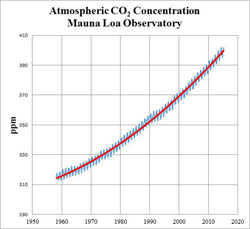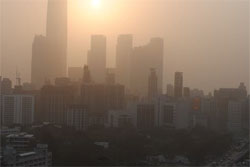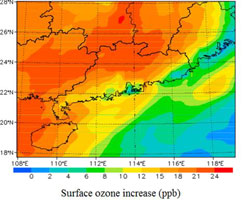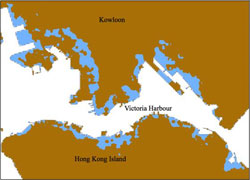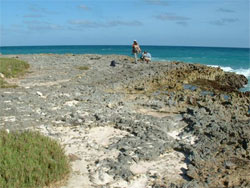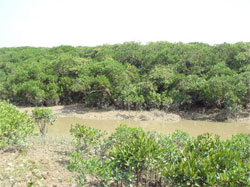Two leading scholars have been invited to deliver public lectures on Climate Changes organized by the Research Grants Council with the Hong Kong Science Museum on 18 July 2015 (Saturday). Details of the lectures are as follows:
| Topic | Speaker | Time |
|---|---|---|
| Impact of Climate Change on Air Quality of Pearl River Delta Region | Dr. K.S. Lam (Associate Professor, Department of Civil and Environmental Engineering, The Hong Kong Polytechnic University) | 2:30 pm - 3:30 pm |
| Sea-level Change in the Past, Present and Future: Implications to Hong Kong | Professor Yongqiang Zong (Professor, Department of Earth Sciences, The University of Hong Kong) |
3:30 pm - 4:30 pm |
Venue: Lecture Hall, Hong Kong Science
Museum (Location
Map)
Language: Cantonese
Free admission on a first-come, first-served
basis.
For enquires, please contact us at 2524
3987 or rgc@ugc.edu.hk.
First Session
Topic: Impact of Climate Change on Air
Quality of Pearl River Delta Region
Speakers: Dr. K.S. Lam
Time: 18 July 2015 (Saturday) 2:30pm - 3:30pm
|
Brief introduction: Climate change and air quality deterioration are two critical challenges that human beings are facing. Climate change induces changes in air temperature, intensity of extreme weather events, and in the amount and pattern of precipitation. Air quality depends directly or indirectly on weather conditions. Therefore, local and regional air quality is sensitive to climate change. Up to the present time, few scientists in Europe and America have investigated the sensitivity and found that climate change may affect air quality by altering transport processes, atmospheric chemical reactions, and pollutant emissions. It is proposed to study the changes in surface ozone and aerosol in the future when air temperature rises through integrating the results of insitu experiments, fixed station observations and numerical models. In-situ experiments will be carried out in some strategic places of Pearl River Delta Region in different seasons to record the boundary meteorological conditions and the concentrations of air pollutants. Meteorological and air quality observation data at a few selected fixed stations will be collected. Recent and future climate and air quality will be simulated by using a 3-D, regional climate-chemistry model system WRF-CHEM. The approach is to conduct four numerical experiments to achieve the proposed objectives. The first experiment will simulate one year period: 2008 for present day conditions (base case). The second experiment will simulate one future year 2050 under no emission growth. The third experiment will repeat the second experiment with emission growth (IPCC, A2 rapid economic growth scenario). The fourth experiment will simulate a few high pollution days in 2050 under different emission scenarios. The aforementioned filed data will be used for model validation and bias identification. Then the simulated data will be analyzed to characterize the current relationship between temperature rise and future surface ozone/aerosol in Pearl River Delta Region. About the Speaker: Dr. K.S. Lam is currently an Associate Professor working in Department of Civil and Environmental Engineering at The Hong Kong Polytechnic University. Dr. Lam acquired both his bachelor and doctor degree from The University of Hong Kong. In recent years, he has been teaching subjects related to occupational health and safety, indoor air quality, applied mathematics and statistics. Dr. Lam has been doing research in areas related to meteorology, air quality and climate change. His research covered stratospheric ozone depletion, climate change impact and urban heat island. Research methodology includes long term ground monitoring, remote sensing and numerical modelling. He has built and operated a background-air monitoring station in Hok Tsui in 1993. He has been monitoring total ozone and solar ultraviolet radiation over Hong Kong since 1995. He specializes in air quality monitoring instruments and numerical modeling. He is the Principal Investigator of the second climate change impact study conducted by Hong Kong Environmental Protection Department. Dr. Lam has great interest in meteorology. He was the ex-Chair of the Hong Kong Meteorological Society. |
|
Second Session
Topic: Sea-level Change in the Past, Present
and Future: Implications to Hong Kong
Speaker: Professor Yongqiang Zong
Time: 18 July 2015 (Saturday) 3:30pm - 4:30pm
|
Brief introduction: One of the consequences of global
warming is the rise of sea level.
As predicted by the recent IPCC report,
global mean sea level has risen for
about 20cm for the 20th century and
will rise for further 26-55cm or 52-98cm
by the end of the 21st century. Without
any doubt, this rise of sea level
will pose a serious threat to coastal
communities worldwide and to Hong
Kong. However, sea-level change has
a strong regional pattern, with places
experiencing significant deviations
from the global mean change. Thus,
to help local communities be better
prepared for this potential threat,
scientific studies on regional sea-level
change are urgently needed. Based
on a number of recent studies in the
South China Sea region, this presentation
will start with an overview of climate
change and sea-level fluctuations
throughout some important geological
periods, and explain the underlying
causes for sea-level change and methods
for sea-level studies. It will be
followed by showing some results and
a summary of the sea-level history
for the South China Sea region. The
sea-level history will help us understand
the two fundamental geological processes
which determine the trajectory of
changes in coastal environment of
the region in the past, present and
future. With the above knowledge in
mind, the potential impacts of future
sea-level rise on Hong Kong's society
can be evaluated, including impacts
on the coastal environment, major
engineering projects and storm flood
hazards. Finally, this presentation
will lead the audience to analyze
why we must not allow global temperature
to rise for more than 2oC within
the 21st century and why climate warming
will have greater impacts on human
society than climate cooling in the
issue of sea-level change. About the Speaker: Before gaining a PhD degree in Durham University, UK, in 1993, Professor Yongqiang Zong had self-taught in marine geology while working in a butcher shop of Guangzhou and studied coastal environmental change in a research institute of China. Between 1993 and 2008, he worked as a postdoctoral research assistant, lecturer and senior lecturer in Durham University, teaching environmental science courses and researching sea-level change. Since 2008, he has served in the University of Hong Kong as an Associate Professor and Professor, coordinating the development of the multidisciplinary major in Environment Science. During his 20 or so years of academic career, he has studied extensively in the fields of monsoon climate change, sea-level and coastal change, and environmental archaeology, as well as developed laboratory techniques using microfossils and organic geochemical methods for palaeo-environmental studies. |
If global temperature is allowed to rise for more than 2oC within the 21st century, sea level may rise for 3 to 5 m. Significant area of the reclaimed land in Hong Kong (shaded in blue) will be flooded by the sea.
Coral reefs emerged about 5 m above sea level are evidence of a high sea level during the last interglacial, during which global temperature was 1.5oC warmer than the present.
Many existing mangrove wetlands and centres of biodiversity will be lost by the rising sea level. |
